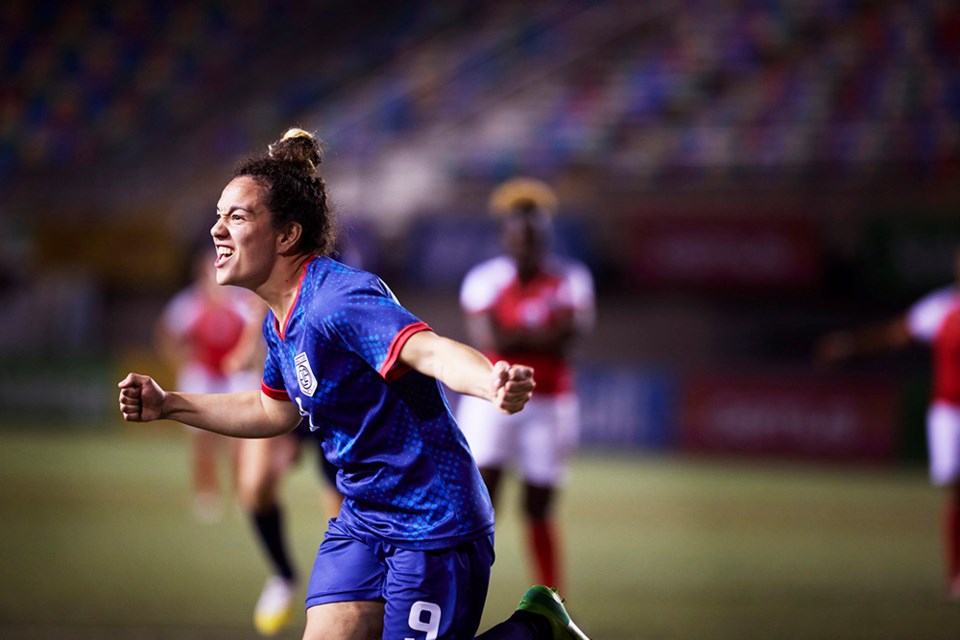Canada’s Women’s National Soccer Team will continue to showcase its remarkable talent and resilience on the global stage, beginning today in Australia against Nigeria in World Cup of Soccer Group B action.
Canadian players, and fellow competitors from other countries, are facing a stark reality that undermines their efforts and achievements: the persisting pay equity struggles that plague most women’s sports. Despite impressive accomplishments and widespread support from fans, media and sponsors, the team grapples with unequal compensation compared to their male counterparts.
The time has come for Canada, and indeed the world, to address this blatant injustice and stand in solidarity with these exceptional athletes.
In recent years, the Canadian women’s team has achieved extraordinary milestones, capturing the hearts of millions as they secured podium finishes at three Olympic Games in a row (bronze in 2012 and 2016, and gold in 2021). Those captivating performances have generated significant revenue for Canadian soccer, leading one to question why the women’s team remains financially disadvantaged compared to the men’s team, which has also been embroiled with Soccer Canada regarding fair compensation.
The gender wage gap in sports is a microcosm of broader societal inequalities, and it is high time that it is dismantled to provide female athletes with the recognition and remuneration they rightly deserve. The pay disparity between the Canadian teams is even more egregious when considering that the women have been more successful than their male counterparts on multiple occasions.
In addition to their Olympic medals, the women have consistently outperformed the men’s team in FIFA (Federation Internationale de Football Association) rankings. The women are currently ranked seventh, while the men's team, which only recently qualified for the World Cup of Soccer after 36 years of futility in advancing to the global stage, is ranked 43rd.
Achievements by the women’s team should serve as a catalyst for action, prompting sports governing bodies, sponsors and society as a whole to address the glaring gender-based discrimination.
One of the main arguments offered to justify the pay gap is that women’s soccer generates less revenue than men’s soccer. However, this argument is inherently flawed as it perpetuates a vicious cycle of underinvestment in women’s sports. Historically, women’s soccer has received far less attention, media coverage and sponsorship deals compared to men’s soccer. This underrepresentation in turn hinders the growth of the women’s game and artificially limits revenue potential. To break this cycle, we need a paradigm shift in how we perceive and invest in women’s sports.
It is essential for soccer federations and governing bodies of all sports to proactively invest in promoting women’s soccer, not only at the national level but also at the grassroots. Establishing equal playing fields in terms of resources, facilities and opportunities will enable talented female players to reach their full potential, fostering a stronger and more competitive national team.
Beyond the sporting realm, this pay equity struggle resonates deeply with the broader issue of gender inequality in our society. It reflects the entrenched societal norms that undervalue women’s contributions, whether in the sports arena or the professional world. By addressing this issue in women’s soccer, we can spark conversations about gender equality in every sphere of life.
Canada has taken strides in advancing gender equality, but the pay equity struggles faced by the Canadian Women’s National Soccer Team are a poignant reminder that much work remains. Embracing pay equity for female athletes would set a powerful precedent for the nation and the world. It would demonstrate Canada’s commitment to equal rights and opportunities, inspiring other countries to follow suit.
These pay equity struggles demand our urgent attention and collective action. Our exceptional athletes have shown unparalleled dedication and skill, and they deserve fair financial compensation. Over the next month they will take the field in search of glory, for themselves and the country they represent. After the final match is played on August 20, the off-the-field issues will be there, still waiting for a resolution.
By addressing the wage gap, we can create a future where young girls dream of sporting success without any doubts about their worth or potential. It is time for Canada to lead the way in advancing pay equity and usher in a new era of gender equality in sports and beyond.
Canada plays its first match at the Women’s World Cup of Soccer tonight at 7 pm. Will you be watching?





